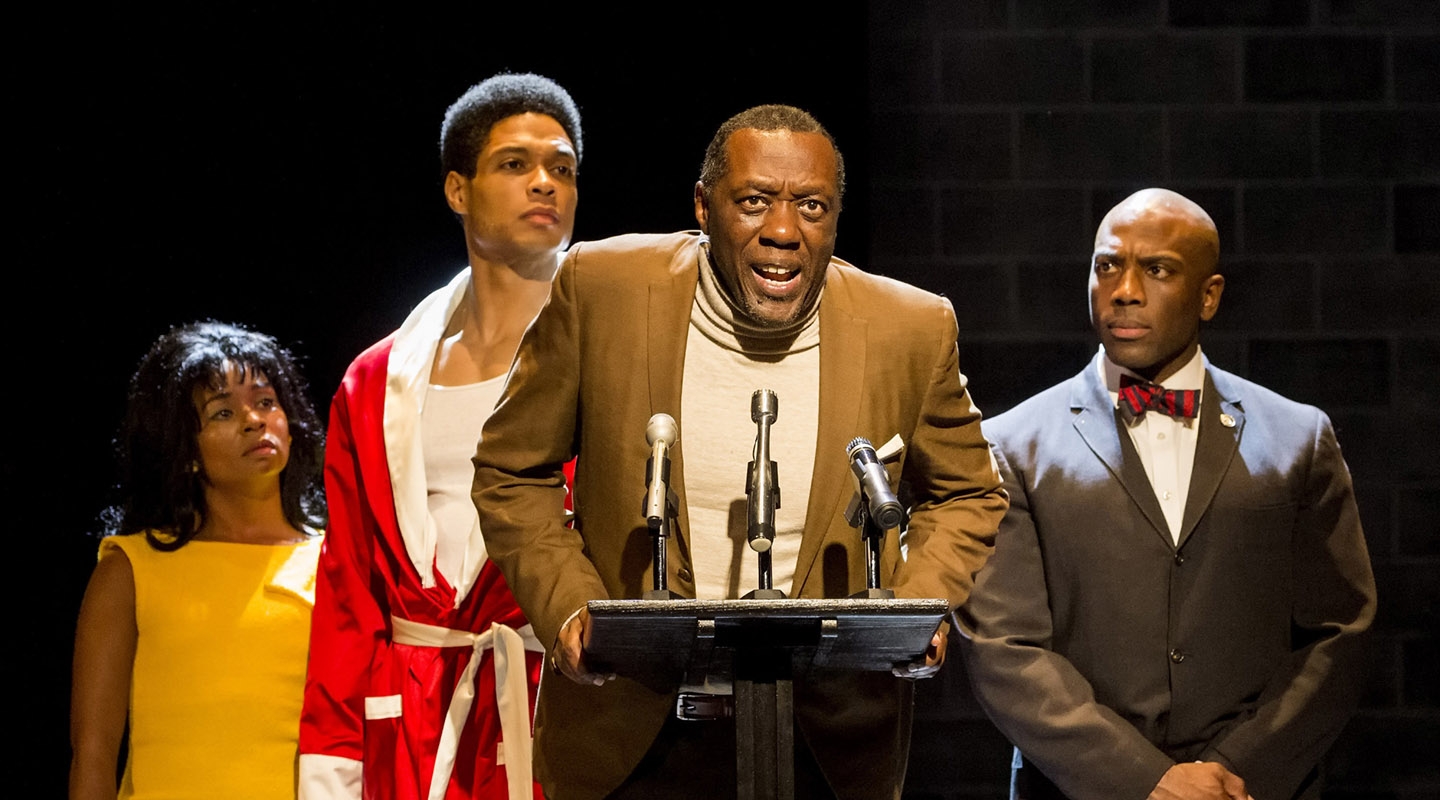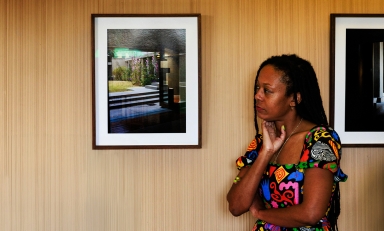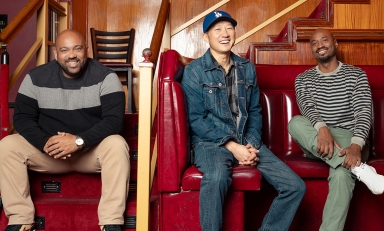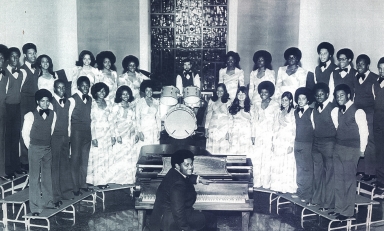Exploring the unlikely friendship between two Black cultural icons—Muhammad Ali and Stepin Fetchit—professor and playwright Will Power’s Fetch Clay, Make Man packs a punch with L.A. audiences
In 2005, during a visit to the United States’ oldest Black-owned bookstore—Marcus Books in San Francisco—Will Power was flipping through the pages of an oversized poster book on Muhammad Ali, when he saw a picture of Ali and his entourage. Next to him was Stepin Fetchit—the controversial Hollywood actor, 40 years Ali’s senior—with a caption that described Fetchit as his “secret strategist.” The photo was taken in the midst of the Civil Rights Movement, a jarring discovery given the two figures’ divergent reputations in Black cultural memory.
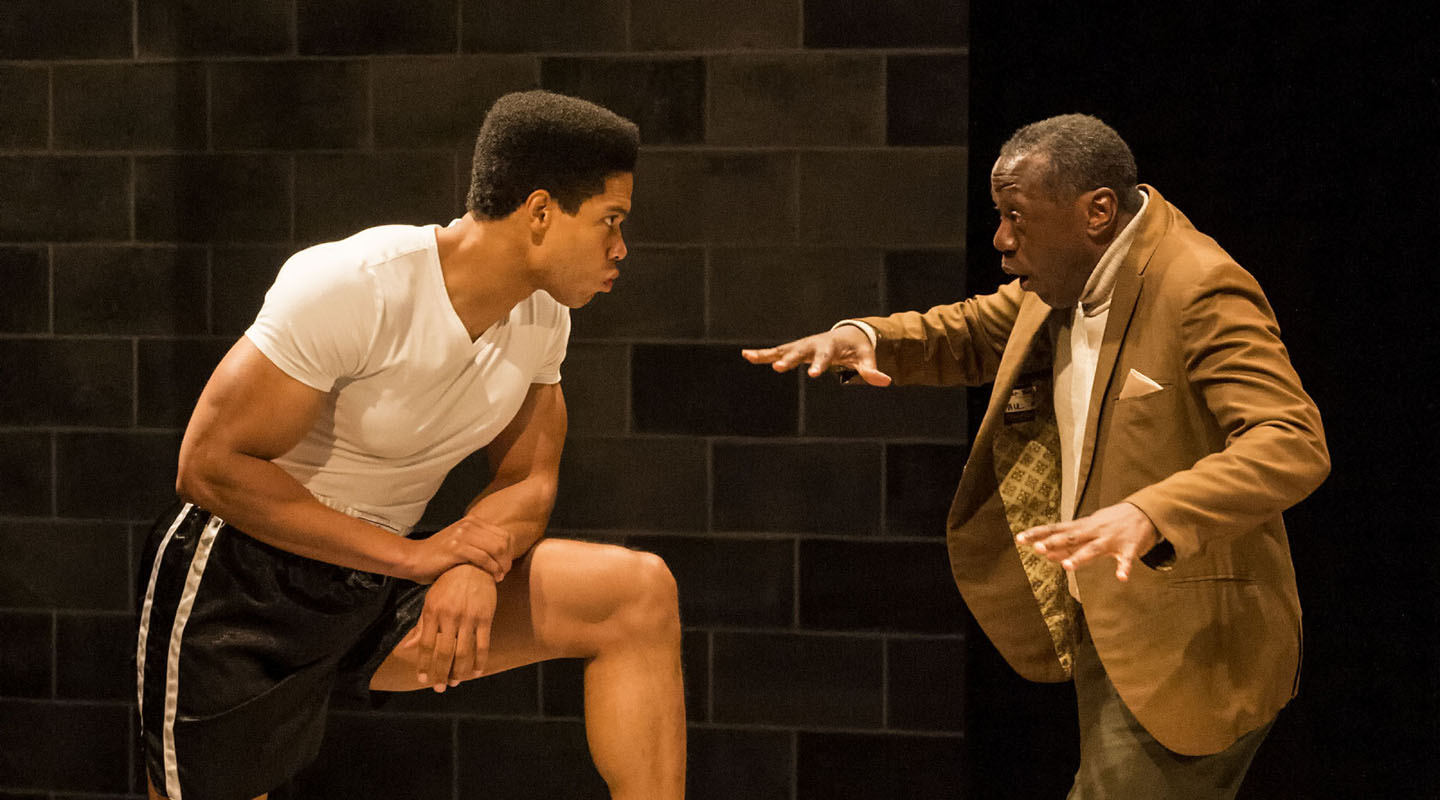
“Muhammad Ali was everything that we wanted to be as young Black boys: smart, funny, brilliant, courageous,” says Power, an assistant professor of theater at Occidental College since 2020. “I knew less about Stepin Fetchit, but I do remember a couple of elders in the community saying, ‘He was an Uncle Tom, he was a sellout, never be like him.’ When I saw that picture of them together, I thought, ‘How could that be?’”
His discovery set him on a course to uncover details about their friendship. More than five years of research, interviews, and writing culminated in the opening of Fetch Clay, Make Man in 2010 at the McCarter Theater Center in Princeton, N.J., with subsequent productions across dozens of theaters and regional companies. Power recently made his Center Theatre Group debut with a new production of the play, directed by Debbie Allen, which ran from June 18 to July 16 at the Kirk Douglas Theatre in Culver City.
For Power—hailed by New York magazine in 2006 as “the best verse playwright in America”—Fetch Clay, Make Man is a uniquely Los Angeles story, both because it harkens back to Hollywood’s Golden Age and interrogates the tensions that permeate perspective, perception, and empowerment.
“I’m trying to unpack the complexities of who we are as human beings, particularly when we’re trying to mold our public image and our private image in the context of class, sex, race, and gender,” he says. “Muhammad Ali’s life was so epic. He was at the crux of real transformational change in American culture. His life was so critical to how we see the modern world.”
Power credits Allen for leading the Los Angeles cast (led by Ray Fisher as Ali and Edwin Lee Gibson as Fetchit) with a deep understanding and reimagining of the story’s spacing, character, and pacing. “She’s an icon, one of the greatest artists I’ve ever worked with,” Power says. “The whole cast is phenomenal—it’s like an acting clinic, what they’re doing every night.”
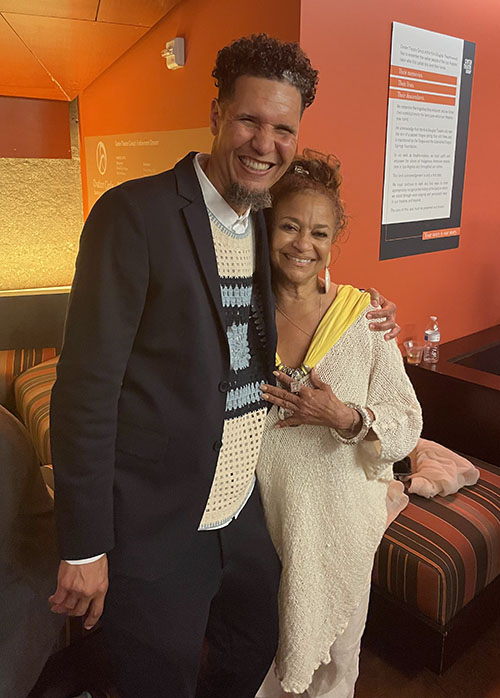
On June 26, Allen joined Occidental President Harry J. Elam, Jr.—a noted theater scholar and director—for a wide-ranging conversation about the state of performing arts. The event, sponsored by the California African American Museum in partnership with Center Theatre Group, was held at The Gathering Spot, a work and event space in Los Angeles focused on ideas and collaboration between African American entrepreneurs.
“Will Power wrote the play in a way that really appealed to my brain because it was moving in a way that was cinematic, almost going in and out of time periods and from this person to that person seamlessly,” said Allen, the award-winning producer, director, writer, actor, and choreographer. “So, it was a really wonderful challenge for me as a director to see how I could create the vision of what this piece is about and what it means—and give it even more resonance that it already has.”
At different moments during the hourlong conversation, the crowd erupted with laughter and murmured in agreement with Allen’s plea for more activism and involvement within the performing arts.
“We have to get people back into the theater, in the seats,” she told Elam. “Really good theater will leave you thinking—entertained but thinking. That’s why it’s important to have places like the Center Theatre Group, the Broad, the Wallis, WACO [Theater Center], Debbie Allen Dance Academy. It’s important because we’re able to be free to express ourselves in ways that you can’t in other places.”
In the classroom, Power hopes the play pushes students to grapple with the complexities of life. “There's a version, or versions, of us that we give out in public, and then there’s a more complex side that we may or may not even be aware of,” he says. “I learned that both men were so much more complex than their public persona.”
Power reached back into Greek mythology to find the subject matter for his next play. Memnon (named for the biracial African king of Greek mythology who battled Achilles during the Trojan War) will run at the Getty Villa in fall 2024.
Additional reporting by Jasmine McKay.
Top photo: From left, Alexis Floyd, Ray Fisher, Edwin Lee Gibson, and Wilkie Ferguson II in Fetch Clay, Make Man. Photo by Craig Schwartz Photography

